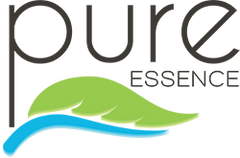Vitamin E is an important nutrient that’s responsible for various bodily functions. It is naturally occurring in some foods like nuts, seeds, and some vegetables. It can also be found in a daily multivitamin or as a standalone formula.
Vitamin E is often thought of as a single compound, but it’s actually a group of eight fat-soluble compounds. Out of the eight compounds, alpha-tocopherol best meets the dietary requirements of humans.
Read on to discover the amazing benefits of vitamin E, signs of deficiency, and how to incorporate it into your diet.
Benefits of Vitamin E
Vitamin E has many benefits. If you don’t have access to food that’s rich in it, it’s important to take supplements. Check out its several advantages:
Antioxidant Properties
Among vitamin E’s many benefits, the most popular one is its antioxidant effects. It protects your cells from free radicals, which can cause various health issues. Antioxidants reduce oxidative stress, which is an imbalance between free radicals and antioxidant defenses. Research indicates that oxidative stress may contribute to tissue damage among diabetics.
Skin Health
Vitamin E for acne is a common recommendation of experts because the nutrient is known for its skin benefits. Vitamin E supplements have been known to help people with skin diseases like eczema.
Helps People with Non-Alcoholic Fatty Liver Disease (NAFLD)
NAFLD is the collective term for various conditions that are due to the accumulation of fat in the liver, even among those who don’t drink alcohol. To combat NAFLD, you need vitamin E for liver whether it’s from food or supplements.
Reduces Risk of Heart Disease
The consumption of food that’s rich in vitamin E can lower the risk of heart disease, especially among the elderly. It’s always a good idea to supplement your diet with vitamin E-enriched multivitamins such as Longevity™ Women and Longevity™ Men.
Prevents Cognitive Decline
There is some evidence that vitamin E prevents cognitive decline, mostly due to its antioxidant properties. There are also ongoing studies that are zeroing in on the possible benefits of vitamin E among people battling Alzheimer’s disease.

Who is at Risk of Vitamin E Deficiency?
Vitamin E deficiency is not common. However, it does happen, especially among people with some rare diseases. People with the following diseases are at risk of vitamin E deficiency:
- Malnutrition - Malnourished people don’t have enough nutrients in the body which puts them at risk for vitamin E deficiency.
- Anorexia nervosa - This is an eating disorder that results in low body weight. People who have it may develop vitamin E deficiency.
- Cystic fibrosis - Cystic fibrosis is an inherited disorder that damages the lungs, digestive system, and other organs in the body.
- Crohn’s disease - This illness is a disease of the bowels where a person’s digestive tract becomes swollen.
- Abetalipoproteinemia - Hereditary in nature, it prevents a person from absorbing dietary fats and vitamins that include vitamin E.
What Happens When You Don’t Have Enough Vitamin E?
Are you getting enough vitamin E? The recommended amount for adults is 15 milligrams of vitamin E every day. Lactating women need a bit more to compensate for what goes into their breast milk - their recommended dose is 19 milligrams daily.
For those who are not getting enough vitamin E, here are some signs that you should rethink your diet or supplements:
1. Muscle Weakness

As mentioned, vitamin E is mostly known as the body’s main antioxidant. When there is vitamin E deficiency, it will likely result in oxidative stress which often leads to muscle weakness.
When you have muscle weakness, you don’t have enough strength. You may notice that you have a hard time carrying things and get tired easily.
2. Lack of Coordination
Zero to low levels of vitamin E may cause coordination problems. You may have a hard time moving properly which often results in jerky motions. You may also experience difficulty walking due to a lack of coordinated movement, a condition that’s known as ataxia.
3. Tingling Sensation/Numbness
The central nervous system is prone to damage by free radicals which makes vitamin E important for a functioning brain, spinal cord, and nerves. A lack of this essential nutrient can cause numbness or tingling sensations in the limbs, hands, and fingers.
4. Deterioration of Vision
Some studies have linked vision impairment to a lack of vitamin E although more research is necessary. The eye is believed to be vulnerable to damage because of oxidative stress. It thus makes sense that vitamin E protects the eyes from free radicals and damage.
5. Weak Immune System
Vitamin E helps keep the immune system strong, protecting the body from viruses and bacteria. Deficiency of the nutrient will result in various illnesses such as colds, infections, fatigue, and frequent stomach aches. Older adults are even more susceptible to having compromised immune systems.

How To Get Enough Vitamin E
Your body does not produce vitamin E. There are only two ways you can get it: through food and supplements. Since vitamin E is not as common as vitamins C and B, supplements are often necessary. However, you may not need a standalone pill since many multivitamins have vitamin E in their formulations.
Here are some tips to avoid vitamin E deficiency:
Use Vitamin E-Rich Oil for Cooking
Instead of using olive oil or canola oil for cooking, use safflower, sunflower, or soybean oil. Olive and canola are healthy but to reach your recommended daily vitamin E intake, safflower, sunflower, and soybean are great options. They have a high smoke point which means they’re ideal for high-heat cooking. They can also be used for roasting and baking.
Snack on Almonds and Peanuts
Chips are delicious and people enjoy snacking on them because of the salt and fat. Those are two ingredients you can also get from almonds and peanuts.
Peanuts and almonds provide the same satisfaction but are better sources of nutrients like vitamin E. To make them even healthier, opt for plain and dry-roasted products.
Incorporate Fruits and Vegetables into Your Diet
It’s a given that fruits and vegetables should be part of your daily diet. To achieve your recommended vitamin E intake, it’s best to include asparagus, avocado, beet, collard greens, mango, pumpkin, red bell pepper, and spinach in your diet. These food items are also rich in other vitamins.
Take Vitamin E Supplements
Vitamin E supplements come in different forms, including gel capsules and tablets. But because high levels of vitamin E can have a negative impact on your health, taking a stand-alone or high-dose (above 540 mg (800 IU)) vitamin E supplement should be done only with the recommendation and monitoring of a certified healthcare professional.
Alternatively, most multivitamins provide a lower, safer amount like this vegan-friendly beverage mix.
Bottom Line
Vitamin E is important for your brain, central nervous system, vision, and immune system. It is best known for its antioxidant properties that fight off free radicals and support health.
Always find ways to incorporate vitamin E into your daily diet. It is easily found in some fruits, vegetables, oil, and snack items. If those aren’t enough, be sure to add a whole food based multivitamin to your daily regimen.

